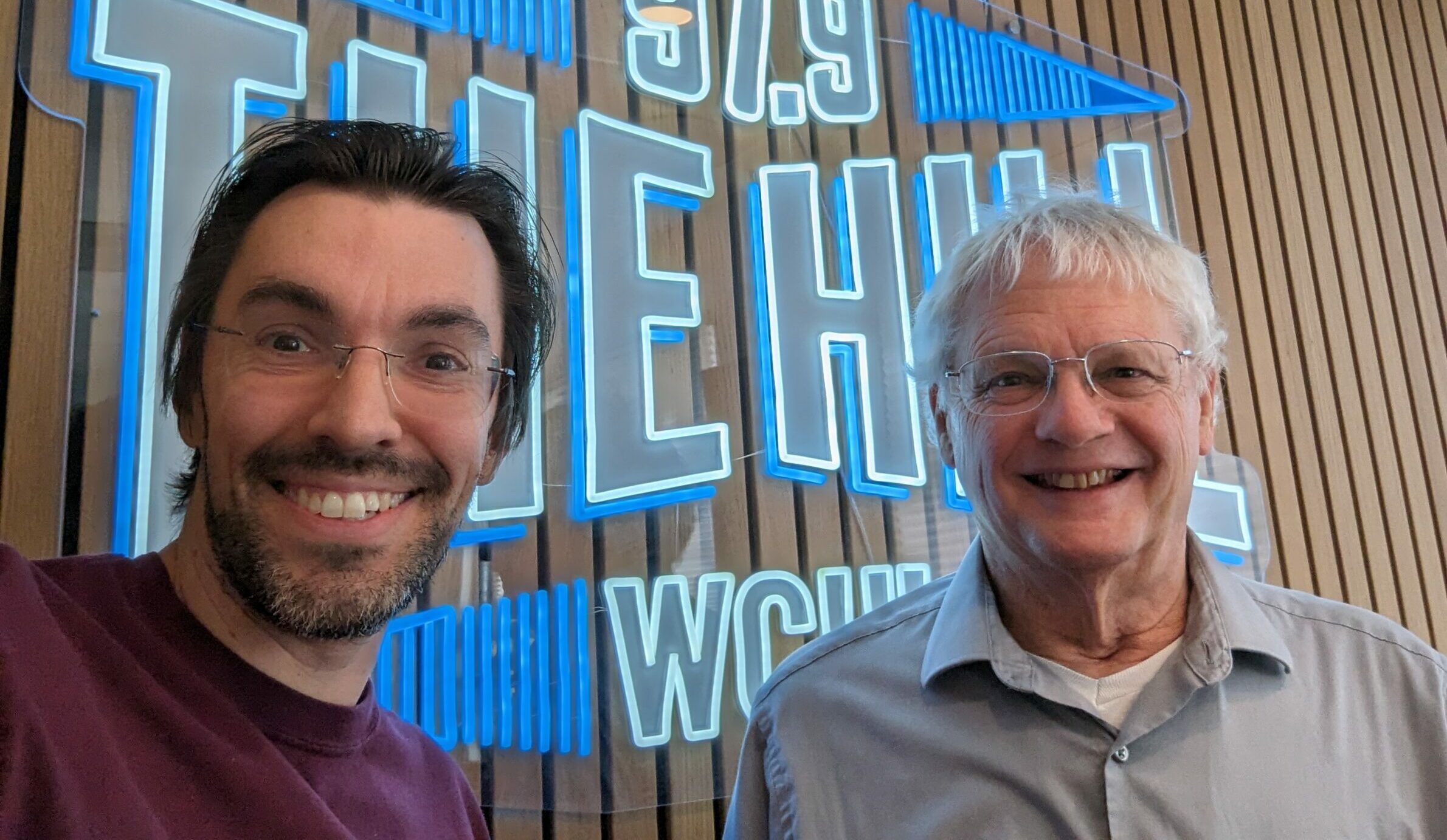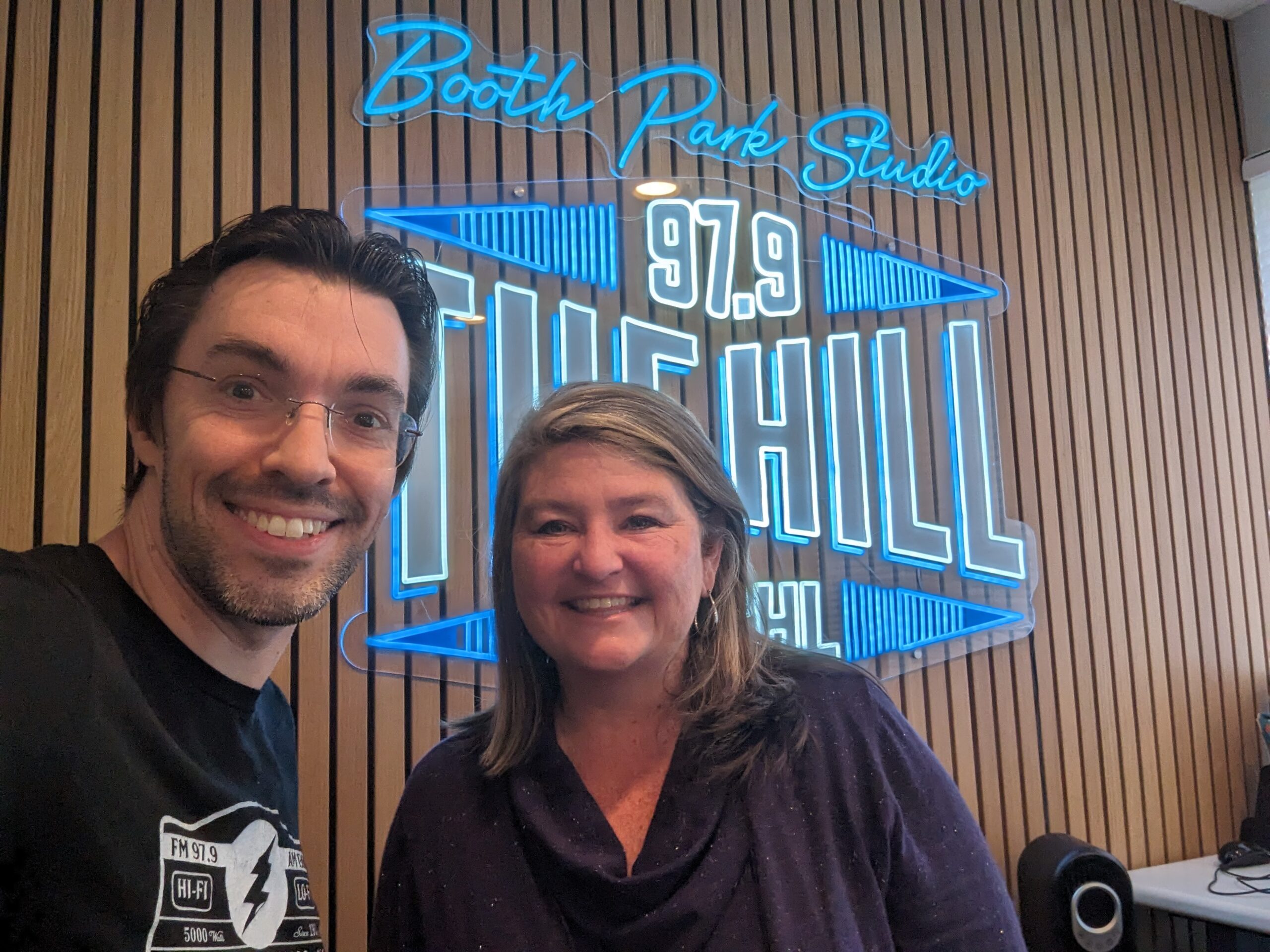The North Carolina General Assembly returns to session on April 24. It’s a “short session,” historically focused on narrow budget issues – but in recent years, Republican leaders have been willing to use the short session to advance high-profile bills not related to the budget as well.
So which actions should we be expecting from lawmakers this year? And which key issues will they largely avoid?
97.9 The Hill’s Aaron Keck discussed those questions recently with State Sen. Graig Meyer (D-Orange).
Click here to listen to their conversation. The transcript below has been lightly edited for clarity.
Aaron Keck: What do you expect to see in Raleigh this year?
Graig Meyer: This is a short session year. ‘Short session’ means we’re only supposed to be there for six to eight weeks, (but) our sessions have tended to go longer (in) the last decade. And we’re really only supposed to do a limited number of things, (mostly) updates to the budget. What will there be on controversial stuff? We’ve seen the Speaker of the House say that he thinks we’ll likely do some type of immigration enforcement bill, likely (one that) would force local sheriffs to cooperate with ICE on immigration. (And) I think there could easily be some bill to put limits on the UNC system’s engagement in DEI practices…
In terms of substantive legislation, the big things that were left undone last year were marijuana (legalization) and casino legalization. And then, of course, there’s the stuff that we should be focusing on. What are we going to do to make sure we have clear, fair election processes this year? What are we doing for education? There’s a lot of talk right now about childcare and the funding cliff that’s coming for early childhood care centers. So there’s some substantive stuff we should take up – but my guess is the headlines will be about those culture-war bills.
Keck: Education and childcare are both budget issues. In a year where the focus should be on the budget, what do we expect to see, or not see, when it comes to the schools?
Meyer: I don’t know. There’s certainly a lot of talk right now after this week’s State Board of Education (report) about the rate that we’re losing teachers – it used to be hard to recruit teachers into poor rural school districts, (but) now even Chapel Hill-Carrboro, Orange County, some of the best funded districts in the state are struggling to recruit teachers. But there’s not been any desire by my Republican colleagues to do anything significant and meaningful about that. And I just don’t see them addressing it. I think they’ve shown that it’s not a problem that they want to address – that in many ways, they want to see education fail. It’s very sad.
Keck: The last time you were here, you said something that stuck with me: the thing that finally got Republicans to move on Medicaid expansion was (the) pocketbook argument, “this is good financially for the state.” I have to assume that argument could easily be made on issues like education and marijuana legalization too. What’s the tipping point?
Meyer: So let’s point out that the Republicans eliminated the corporate income tax, and so they’ve blown a hole in our budget. If you look four or five years out on our budget projections, we get to the point where we start to have structural deficits. We’ve never had that in North Carolina before. That’s a problem. They have to figure out how to fill that hole. And that’s why they were pushing casino legalization: they thought the casinos would fill that budget hole. If we don’t pass casinos again (this year), there’s not going to be a lot of extra money. You won’t be able to see a big teacher pay raise or state employee pay raise…
(And) Republicans will hear about it from their own people, when their school districts can’t afford to keep teachers. So there will be some pressure on them. But they’re certainly not going to raise taxes. Maybe they’ll do some type of sin tax: casinos or marijuana legalization. But the (marijuana) bill that they have in front of us right now is just medical marijuana, and it actually costs the state more than it raises, about $38 million a year, because administering a medical-only marijuana program is actually pretty expensive. You have to monitor it and everything. I would support a full legalization, which (could) generate a couple hundred million dollars in revenue…
(But) we really should be talking about those big picture things, (about) how we’re going to have enough revenue. But that’s not the way that the (Republican) leadership works.
Keck: You’ve heard from local officials (in) their legislative breakfasts, about their priorities for the coming year. What have they said?
Meyer: School funding. Both for teachers and for facilities. Sewer and water has been a big ask. The childcare issue is a big one – and I think that one is more likely to (pass) this year, (because) the North Carolina Chamber of Commerce has actually stepped in: they’re usually pretty far to the right, but they’ve realized, and they’ve been quite public in saying, we have to keep these childcare programs running or else people won’t be able to go to work.
Keck: What’s another way to raise revenue without putting a big additional tax burden on working families?
Meyer: Well, not eliminating the corporate income tax would be the biggest one, right? I mean, I think most people get that it’s kind of ridiculous that corporations right now are paying about 50 percent of the tax burden that you and I pay as individuals. And we have a corporate sector that is doing really well, that can afford it. And our current tax rate for corporations is 2.5 percent; that’s about half of the lowest of all our competitor states. So we already have a really advantageous tax situation. There’s no reason why we need to take it from 2.5 percent to zero.
Keck: There’s one issue that probably won’t see action this year, but you’ve been speaking out strongly: open records law, and transparency for legislative officials when it comes to public records.
Meyer: Right. In (last year’s) budget there is a provision that exempts legislators from the state’s public records law. It’s really kind of groundbreaking for any state to go backwards on public records access. Usually once you’ve opened the door on public records, it’s really hard to close it back again. So they’ve gotten criticism on the left and right. My colleagues on the right have been very quiet about it – but to be honest, so have a lot of my colleagues on the left. I turned over 10 years’ worth of email records to one reporter who asked for them – but no one else has done that, on the left or the right.
And I think that speaks to why it’s so important to have a strong public records law. If you leave it up to individual legislators, they will always (act) in their own favor. But our work is paid for by you. I’m elected by you. Everything that I have should be yours. It’s preposterous that I should get to choose what to keep private. And in the law it even says, not only can I choose to not give it to the public, I can destroy it. Or I can sell it. Why would you sell records? I mean, the only thing I can think of is that it’s some type of corruption or coverup.
Keck: You’ve said – this is paraphrasing – (that) we really shouldn’t have to have an open records law at all. If you’re a legislator, you should (automatically) be walking into the General Assembly thinking, “I represent the people. My business is the people’s business. The people is the government, and the government is the people, and they should be one and the same.” That’s what democracies and republics are all about. Open records law shouldn’t even be necessary in the first place.
Meyer: That’s always been my assumption as a citizen. If the government’s doing the business, it’s my business. I should be able to find out what it is. So I just think it’s unforgivable that our legislature has decided to do this.
Keck: We’ve been looking ahead to the General Assembly’s short session. But there’s one more issue that you’ve been focused on: this push to turn the rail line through Chapel Hill and Carrboro, that coal line, into an actual greenway, with housing and commercial development.
Meyer: I’m really excited about this project. I think this would be the most transformative thing for southern Orange County that we will see in the next 40 years…
So UNC still has a co-generation power plant that uses coal and natural gas, that provides heat and steam for the university. They want to eventually eliminate their use of coal…they’ve got to figure out how to make the transition to another energy source, which isn’t easy, but once they do, you can shut down that rail line. And that rail line goes through downtown Carrboro, (and) it goes through neighborhoods in Carrboro and Chapel Hill, including the ones that are close to Seawell Elementary, Smith Middle, and Chapel Hill High. Those schools have never had walk zones because (of) the rail line. So all of a sudden people could walk to school. It goes up through the Greene Tract, which will eventually be developed. It goes through Carolina North and the airport, which is the largest tract of land that we have available for any type of future use in the southern part of the county.
And so you could have this multimodal greenway. People would walk and bike along the largest tracts of land in our big commercial core, which could all be usable. We could develop housing, we could have economic development. I mean, this would be a new thoroughfare in southern Orange County, opening up all kinds of possibilities.
Chapelboro.com does not charge subscription fees, and you can directly support our efforts in local journalism here. Want more of what you see on Chapelboro? Let us bring free local news and community information to you by signing up for our newsletter.







